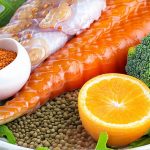Maintaining adequate hydration is fundamental to overall health and wellbeing, impacting everything from cognitive function and energy levels to skin vitality and digestive processes. However, many people associate hydration solely with water, or perhaps tea and coffee, often overlooking a wide spectrum of delicious and naturally hydrating alternatives. While both water and certain teas offer substantial benefits, relying exclusively on these can become monotonous, potentially leading to decreased fluid intake. Furthermore, some individuals experience sensitivities or preferences that make consistent consumption of traditional beverages challenging. This article explores exciting and flavorful tea-free options for staying adequately hydrated, focusing on natural sources and creative ways to enhance your daily fluid intake beyond the typical choices.
The importance of hydration extends far beyond simply quenching thirst. Our bodies are composed of approximately 55% to 78% water (depending on age and individual factors), and this vital component is involved in nearly every bodily function. Proper hydration supports nutrient transport, waste removal, temperature regulation, joint lubrication, and even mood stabilization. Recognizing that “hydration” isn’t just about volume but also electrolyte balance is crucial; incorporating naturally electrolyte-rich options can further optimize wellbeing. Let’s dive into a world of refreshing alternatives to keep you feeling your best, without relying on tea.
Naturally Hydrating Fruits & Vegetables
Many fruits and vegetables boast exceptionally high water content, making them fantastic additions to a hydration strategy. Watermelon, for example, lives up to its name, containing approximately 92% water! Cucumbers are another excellent choice at around 96%, while strawberries, cantaloupe, and peaches all contribute significantly to daily fluid intake. These aren’t just about the water content though; they also provide essential vitamins, minerals, and antioxidants, boosting overall health alongside hydration.
Beyond eating these fruits and vegetables directly, consider incorporating them into infused waters or smoothies. A simple cucumber and mint infused water can be incredibly refreshing, while a strawberry-banana smoothie offers both hydration and sustained energy. Don’t underestimate the power of seasonal produce – focusing on what’s readily available ensures freshness and optimal nutritional value. Prioritizing whole fruits over juices is key, as juices often lack fiber and contain added sugars. If you’re looking for ways to boost your overall health through diet, consider exploring natural fiber planning alongside these hydrating options.
The benefit goes beyond just direct consumption too. Soups, especially those based on vegetable broths, are incredibly hydrating and can be a comforting way to increase fluid intake, particularly during colder months. Clear broths, like miso soup (though some consider this a tea-like beverage), provide electrolytes alongside hydration, making them a doubly beneficial choice.
Enhanced Water Options
Plain water is undeniably the gold standard for hydration, but it doesn’t have to be boring! Adding natural flavors can encourage increased consumption and make staying hydrated more enjoyable. Here are some ideas:
- Fruit Infusions: Slice citrus fruits (lemon, lime, orange), berries, or even herbs like mint and basil into a pitcher of water and let it sit for at least 30 minutes to allow the flavors to meld. Experiment with combinations – strawberry-basil, cucumber-mint, or lemon-ginger are all popular choices.
- Coconut Water: Naturally electrolyte-rich, coconut water is an excellent alternative to sugary sports drinks. It provides potassium, sodium, and magnesium, making it ideal for rehydration after exercise or in hot weather. Look for unsweetened varieties.
- Sparkling Water with a Twist: If you crave carbonation, sparkling water is a great option. Add a squeeze of fresh juice (lime, grapefruit) or a few slices of fruit to enhance the flavor without adding sugar.
Beyond flavoring, consider temperature. Some people prefer ice-cold water, while others find room-temperature more palatable. Finding what works best for you is essential for consistent hydration. A little experimentation can go a long way. To further support your kidney health alongside proper hydration, you might also want to explore kidney-safe ways to boost hydration throughout the day.
Electrolyte-Rich Alternatives Beyond Coconut Water
While coconut water is often touted as the go-to electrolyte source, many other natural options exist. Watermelon, surprisingly, contains citrulline, an amino acid that may help improve hydration and muscle recovery. Beet juice also offers nitrates which can support blood flow and potentially enhance exercise performance, contributing to efficient hydration.
- Aloe Vera Juice: Contains electrolytes and is known for its soothing properties – but be sure to choose a variety specifically intended for internal consumption.
- Maple Water: Derived from maple trees, this naturally sweet liquid provides trace minerals and electrolytes. Opt for pure maple water without added sugars.
- Homemade Electrolyte Drinks: You can easily create your own electrolyte drink using ingredients like orange juice (for potassium), a pinch of sea salt (for sodium), and a splash of lemon or lime juice.
Remember that excessive electrolyte intake can be detrimental, so moderation is key. The goal isn’t to aggressively replenish electrolytes unless you’ve been significantly dehydrated through strenuous activity or illness. Listen to your body and adjust accordingly. Staying properly hydrated is particularly important if you are managing any underlying health conditions; learning about the relationship between hydration and urology medications can be very beneficial.
Hydration Through Fermented Beverages (Carefully)
Fermented beverages like kombucha often fall into the “tea” category, but many non-tea based fermented drinks offer hydration benefits and probiotic support. Consider water kefir, a lightly effervescent drink made from water infused with sugar and kefir grains. It’s less sweet than kombucha and doesn’t rely on tea as its base.
However, it’s crucial to approach fermented beverages cautiously.
- Start slowly, as the probiotics can sometimes cause digestive upset initially.
- Choose brands with low sugar content or make your own at home to control ingredients.
- Be mindful of potential interactions if you have underlying health conditions – consult with a healthcare professional if you’re unsure.
Fermented beverages aren’t necessarily a replacement for plain water, but they can be a flavorful and potentially beneficial addition to a hydration strategy, offering gut-health benefits alongside fluid intake. It is important to note that these drinks shouldn’t be relied upon as the primary source of hydration. Water remains paramount. For those with sensitive systems, exploring tea-free natural beverages can provide a gentler hydrating experience.





















